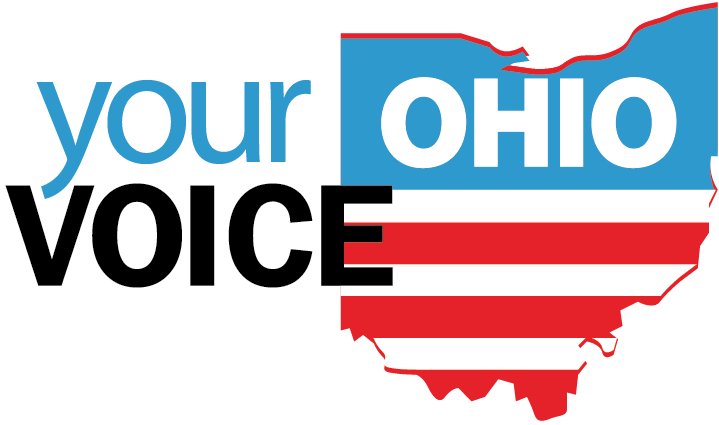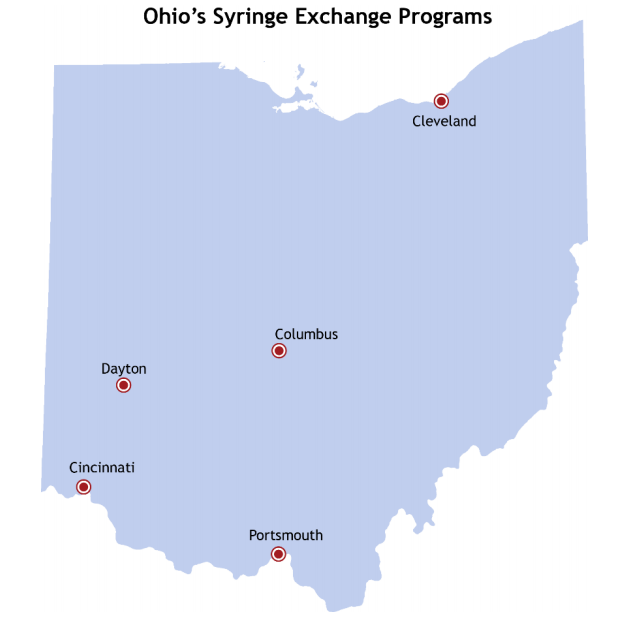UPDATED
Needle exchanges for drug users often stir opponents who suggest they encourage abuse, but they are critical to the prevention of the spread of HIV and hepatitis, according to the CDC.
The Center for Community Solutions produced a study of syringe exchanges in March 2016 showing that Cleveland was first in 1995, and Portsmouth followed in 2011. Portsmouth and Scioto County have some of the highest death rates from opioid overdoses.
Portsmouth, with a population of 20,000, exchanges 7,000-8,000 syringes a month, according to the report. Cleveland, with nearly 20 times the population, exchanges five times as many syringes. The table is on page 7 of the report.
In Ohio, the programs have expanded rapidly in the past year, with Akron and Toledo adding recently and Cincinnati expanding to Middletown.
Officially, they’re referred to as a Syringe Exchange Program, or SEP.
Tara Britton at the Center for Community Solutions included this in her analysis:
“The fiscal impact of preventing HIV and HCV is considerable given the high costs of treating HIV and HCV. The annual costs of treating HIV in the United States are upwards of $20,000. A medication that can cure HCV costs $1,000 per pill equaling $84,000 over the 12‐week course of treatment.”
This is a changing landscape. Ohio Valley Resource, which is a collaborative of NPR stations from Louisville, Ky., to southeast Ohio, produced this list of exchanges, with hours of operation and phone numbers, but communities are being added rapidly.
OVR has Cincinnati, Cleveland, Dayton, Canton, Portsmouth and Columbus. The site provides web links to each, which is important, because the Cincinnati exchange has expanded into hard-hit Middletown in Butler County.
Since those reports, others have started programs.
Gallia County on the Ohio River in southeast Ohio received permission to open in 2015.
Akron and Summit County launched in the summer of 2016.
According to a Toledo Blade article earlier this year, Lucas County intended to establish a program this year. Is it running?
WKBN in Youngstown reported early this year that in Trumbull County (Warren-Niles) there were “520 newly confirmed and probable hepatitis cases in 2016 alone.” However, there are no programs in Trumbull or Mahoning counties, both of which are among the state’s most severely affected. The closest exchanges for those cities are Pittsburgh and Cleveland.
Are we missing any?






[…] proven solutions, check out this Your Voice Ohio blog for several at work in Ohio, among them needle exchanges, Quick Response Teams and data […]